No water, no shade: How homebuilders, farming companies and construction firms got politicians to reject heat rules for outdoor workers in Florida
As Florida begins another summer of record heat, a look back at how Florida's Big Business lobby got politicians to stop a statewide heat-safety law — and then block any local laws, too.
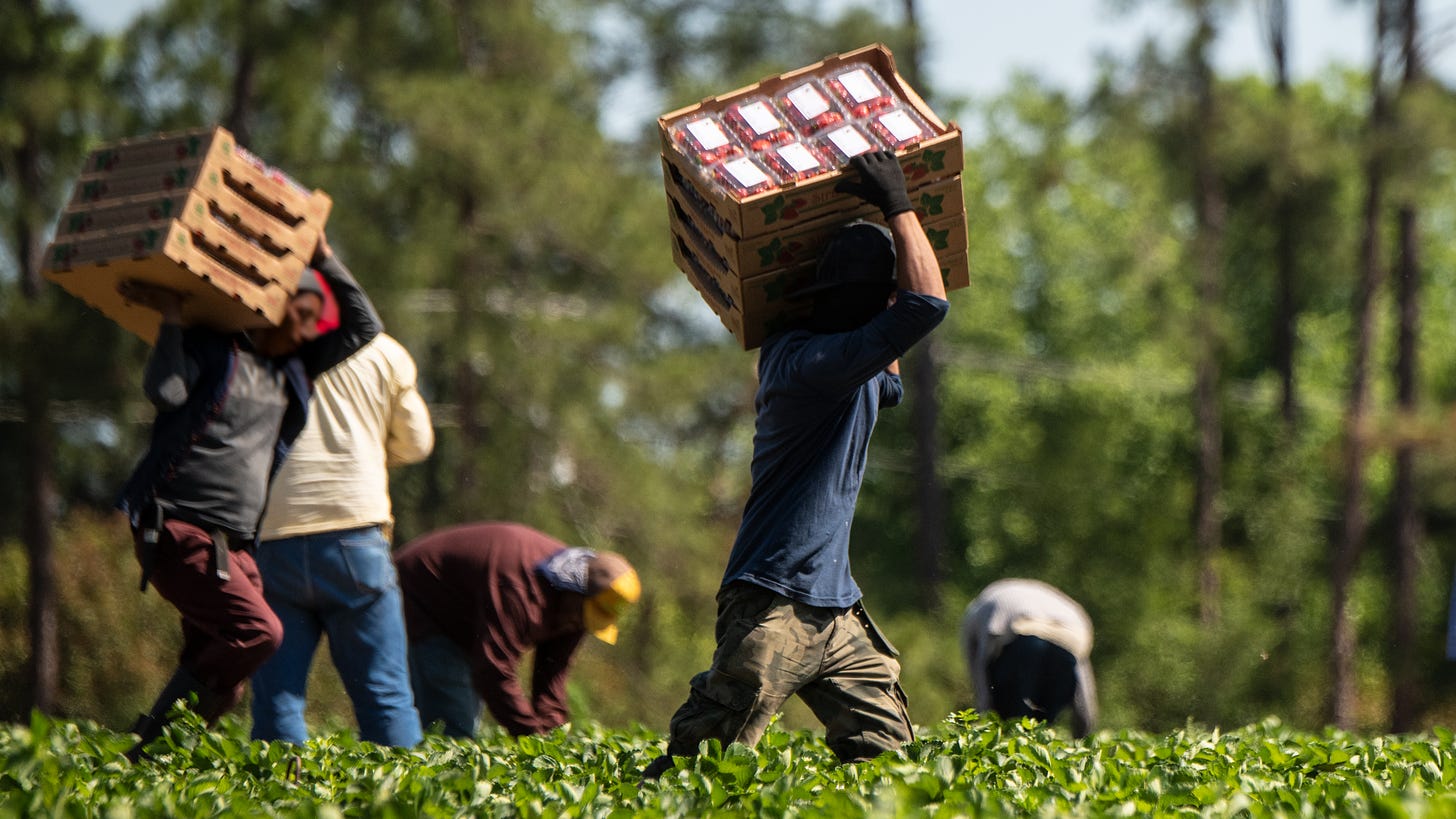
This is Seeking Rents, a newsletter and podcast devoted to producing original journalism — and lifting up the journalism of others — that examines the many ways that businesses influence public policy across Florida, written by Jason Garcia. Seeking Rents is free to all. But please consider a voluntary paid subscription, if you can afford one, to help support our work
For just one moment, it seemed like a new day had dawned in the Florida Capitol.
Since 2018, a coalition of farmworkers and construction laborers — the folks who pick strawberries, harvest sugarcane, shingle roofs, and build homes — had been pleading with state lawmakers to do something to protect people who work outside in the steamy Florida heat.
These workers weren’t asking for much. All they wanted was for the Florida Legislature to pass a bill encouraging businesses in industries where employees regularly work outdoors — like agriculture, construction and landscaping — to train their staffs to spot signs of heat stress and to provide basic safety precautions, like water and shade.
The new law would have been more suggestion than command: There wouldn’t have been any penalties for businesses that refused to comply.
And yet, Republican leaders in Tallahassee had been killing the bill, year after year, without any explanation, by refusing to bring it up for a vote. They refused to budge even as global temperatures rose and Florida kept getting hotter.
But then, in January 2022, the Florida Senate finally scheduled a hearing on the heat-safety legislation in its Agriculture Committee.
The bill didn’t just pass that committee. It soared across it.
Nearly two dozen people testified in support of Senate Bill 732, including farmworkers, a UPS driver, and the widow of a construction worker who collapsed and died on a job site in summer.
So did the CEO of a large tomato grower with farms in Florida, Georgia, Tennessee and Mexico. His testimony struck a chord with Sen. Jim Boyd (R-Bradenton), one of five Republicans serving on the Agriculture Committee.
“It’s significant to me that a businessowner and a farmer that grows enormous crops cares enough to come up here and talk about this,” Boyd said. “Oftentimes, the farmowners and the folks that run those operations, I think, are maligned for not caring about their workers.”
“It’s really kind of heartwarming,” Boyd added, “to see the farmers, the workers, everybody coming together on such an important issue.”
Another Republican committee member — Sen. Keith Perry (R-Gainesville) — told the audience and his fellow senators that he personally understood how dangerous it can be to work long hours in the Florida heat
“As most of you know, I own a roofing business. Don’t get on a roof a lot. But last September — first week of September — I was on a roof. We didn’t have anybody else. I worked 10 hours in 94-degree heat,” Perry said. “[I] understand what the heat does.”
Not a single person spoke against the bill. The sponsor — Sen. Ana Maria Rodriguez (R-Miami) — seemed genuinely surprised by the overwhelming display of support.
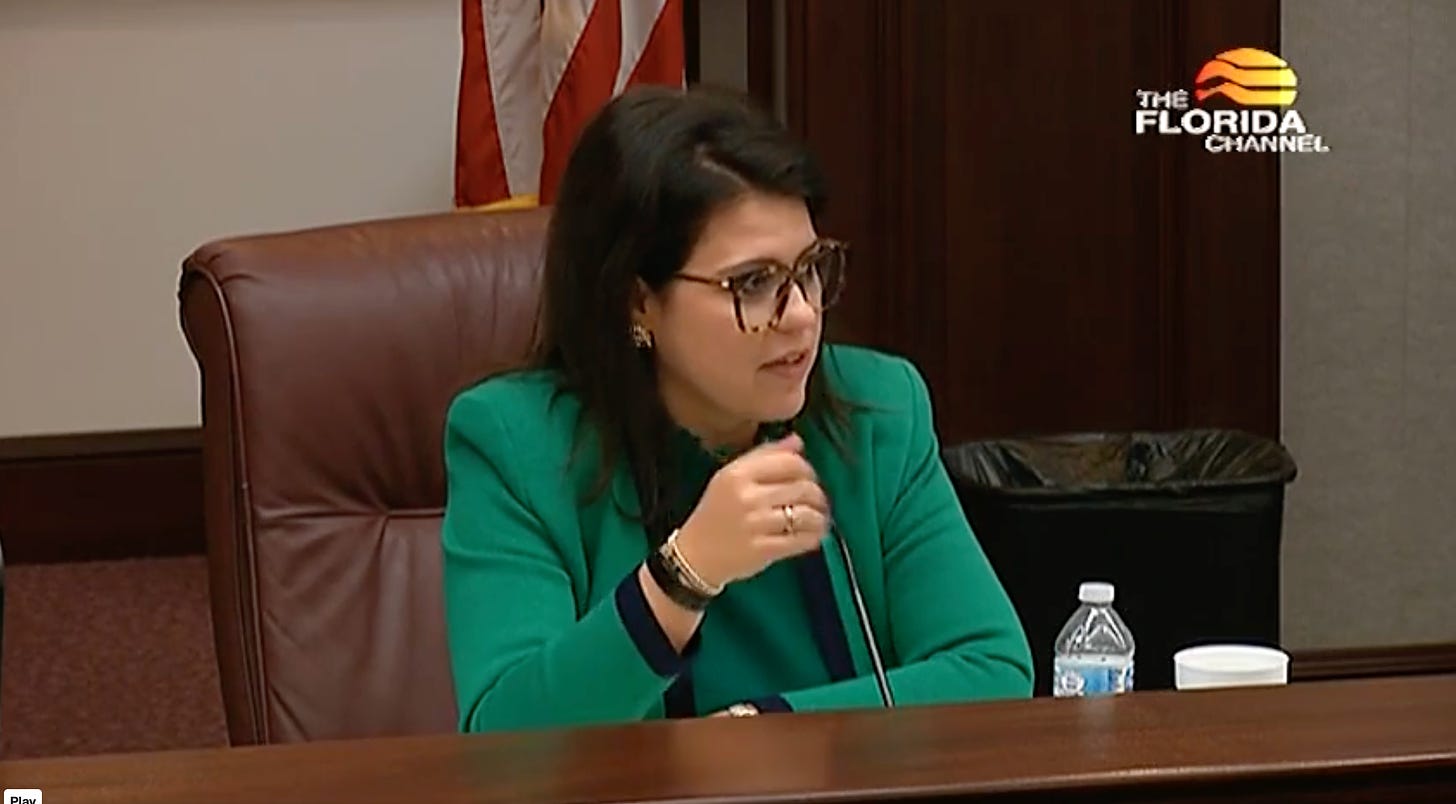
“Honestly, I wasn’t really sure what the probabilities were of getting this bill agenda’d or even being here where we are today,” Rodriguez said, before asking the committee to approve the bill and move it one step closer to becoming law.
“But I’m excited,” she added. “It’s really about health and wellness and making sure people are protected.”
The final vote was 7-0. The heat-safety bill had passed unanimously.
It would never move again.
‘The bill will not move any further’
Sometime soon after that hearing, lobbyists representing the homebuilding industry approached Rodriguez.
There’s no way to know for certain what they said. But the lobbyists came away confident that the heat-safety bill — the one that farmworkers and construction workers were pleading for, the one that Republican senators had just called “important” and about “making sure people are protected” — was doomed.
“We were informed by the Senate sponsor that the bill will not move any further through the process,” a representative for the Florida Home Builders Association wrote in a mid-session update to members.
The Florida Home Builders Association is a powerful lobby in Tallahassee. It is run by companies like Lennar Corp., the Miami-based Fortune 500 giant that turned a nearly $4 billion profit last year, and Mattamy Homes, the largest privately held homebuilder in North America.
And while the homebuilder lobbyists never said peep about the heat-safety bill in public, they torpedoed it in private.
A few weeks later — after Republican leaders gaveled the 2022 session to a close without, as promised, ever hearing the heat-safety bill again — the homebuilder lobbyists boasted about killing the bill.
“Our advocacy team also successfully defended the industry by defeating harmful legislation concerning heat illness and injury prevention plans…” the then-president of the Florida Home Builders Association wrote in a post-session “advocacy report.”
But the homebuilders had help. The agricultural industry also lobbied against the bill behind the scenes.
In the lead up to that year’s legislative session, the Florida Farm Bureau arranged a day of meetings between legislators and hundreds of its members. And the organization specifically urged its members to oppose the heat-safety bill, which had been filed just a few weeks earlier.
“FFBF opposes the bill in its current form because these matters are already regulated in other ways,” the Farm Bureau wrote in briefing packets for members meeting with lawmakers.
The Farm Bureau is Florida’s largest ag industry lobbying group. It represents agribusinesses like A. Duda & Sons, which is both one of the world’s largest celery producers and a major real-estate developer.
Broader construction industry groups also lobbied against the heat-safety bill, including Associated General Contractors.
Workers tried again in 2023. Their heat-safety legislation was filed as Senate Bill 706 and House Bill 903. But legislative leaders would not allow the bill to move, and it died without a hearing.
It was the fifth time in six years that Florida’s Republican-controlled Legislature had rejected a statewide heat-safety bill.
Among those that bragged about stopping the legislation this time around? The Florida Chamber of Commerce, whose top funders include the Big Sugar companies Florida Crystals and U.S. Sugar Corp.
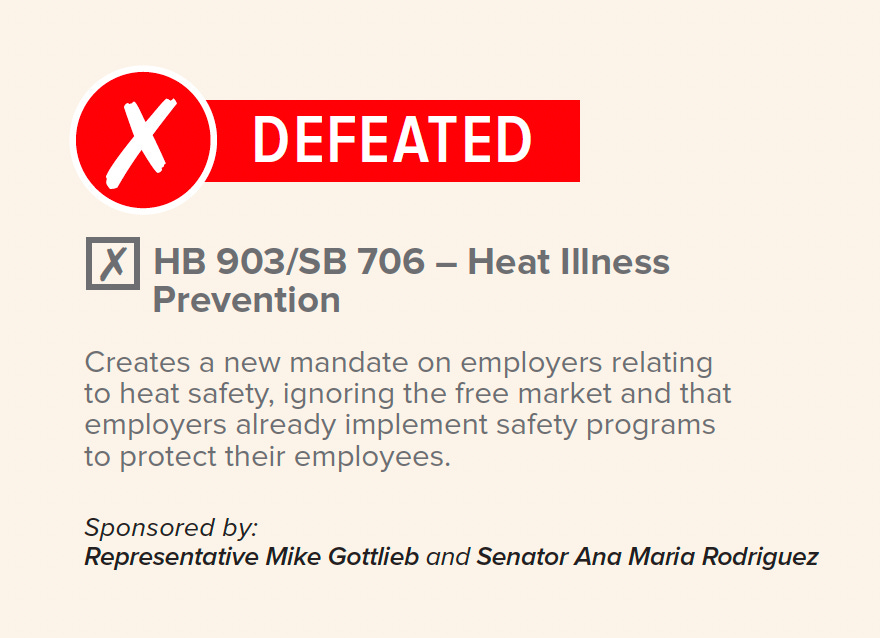
‘The business community is in lock step’
Once it became obvious that state leaders were unwilling to help, farmworkers and construction workers and their advocates turned their attention to local leaders instead. And in July 2023, county commissioners in Miami-Dade County introduced what would have been the nation’s first local heat-safety law for outdoor workers.
It was, basically, the same idea that had been pitched in the Legislature. The Miami ordinance would have required agriculture and construction companies to provide their workers with water and shade and training to spot signs of heat illness. The ordinance would have protected an estimated 80,000 workers in Miami-Dade, Florida’s most populous county.
But then Florida’s biggest businesses started pulling strings in Tallahassee again. Except this time, they weren’t lobbying Florida lawmakers to do nothing. They were lobbying Florida lawmakers to make sure no one else did anything, either.
The result was House Bill 433, which passed on the final day of this year’s legislative session and was quickly signed into law by Gov. Ron DeSantis. The legislation makes it illegal for Miami-Dade County — or any other local government — to set heat-safety rules for outdoor workers.
In other words, it’s a law that stops cities and counties from doing what Ron DeSantis and the Florida Legislature refuse to do themselves.
Business lobbying groups put all of their political muscle into passing HB 433. Emails obtained in public records requests show that the Florida Home Builders Association told lawmakers that the bill was one of its top priorities. The Florida Chamber of Commerce, meanwhile, warned legislators that it would double-count their votes on the bill when compiling its annual post-session “report cards.”
Corporate lobbyists were squeezing lawmakers as late as the final night of the session, according to text messages obtained by McKenna Schueler of the Orlando Weekly.
“I haven’t text you in weeks — HEAT cannot die,” a lobbyist for Associated Builders and Contractors texted to the chief of staff to House Speaker Paul Renner after 9 p.m. on the night before session ended, when it was still not clear whether HB 433 would pass. “The entire businesses community is in lock step on this.”
In an especially ugly twist, the Republican senator who once sponsored the bill to set statewide heat-safety rules — Sen. Ana Maria Rodriguez (R-Miami) — cast the pivotal vote in favor of HB 433 that enabled that bill to pass.
The final version of HB 433 did more than block local heat-safety rules, too.
The new law also stops cities and counties from passing local laws that would require businesses with lots of hourly and part-time employees — like fast-food restaurants and other chain retailers — to give workers their schedules two weeks in advance. It will also dissolve local “living wage” ordinances, which will allow government contractors doing business in many of Florida’s big cities to cut pay for tens of thousands of employees.
That helped bring on additional corporate lobbying support for HB 433 — from groups like the Florida Retail Federation, which represents big box retailers like Target, Walmart and Home Depot, and the Florida Restaurant & Lodging Association, whose members include the parent companies of Olive Garden and Outback Steakhouse.
As Associated Builders and Contractors crowed in a post-session magazine, “This bill was a true collaborative effort.”
A silver lining?
It’s possible there could be a silver lining here.
The passage of House Bill 433 seems to have generated more outrage and revulsion than usual outside of Tallahassee — and from a broader cross-section of Floridians, too.
It may help that South Florida is once again breaking heat records; the heat index in Key West just hit 115 degrees and it’s not yet June. And this comes after Florida as a whole just sweltered through its hottest year on record.
This is a law that quite literally stops communities from ensuring that workers toiling away in that heat have access to water and shade. As Orlando Sentinel columnist Scott Maxwell wrote recently, most people would expect no less for dogs.
Even DeSantis has attempted to distance himself from the bill he signed. “It wasn’t anything that was coming from me,” DeSantis said after a reporter asked him about HB 433.
Perhaps this will lead to positive action in Tallahassee. A moment where the governor and lawmakers finally stop pretending there’s no problem and pass a statewide heat-safety law.
Then again, the Florida Legislature is about to be taken over by new leadership. The incoming bosses include Sen. Ben Albritton, a Republican from Wauchula who will become president of the Florida Senate after the November elections.
And Albritton just last month cashed $100,000 worth of checks from the Florida Chamber of Commerce.





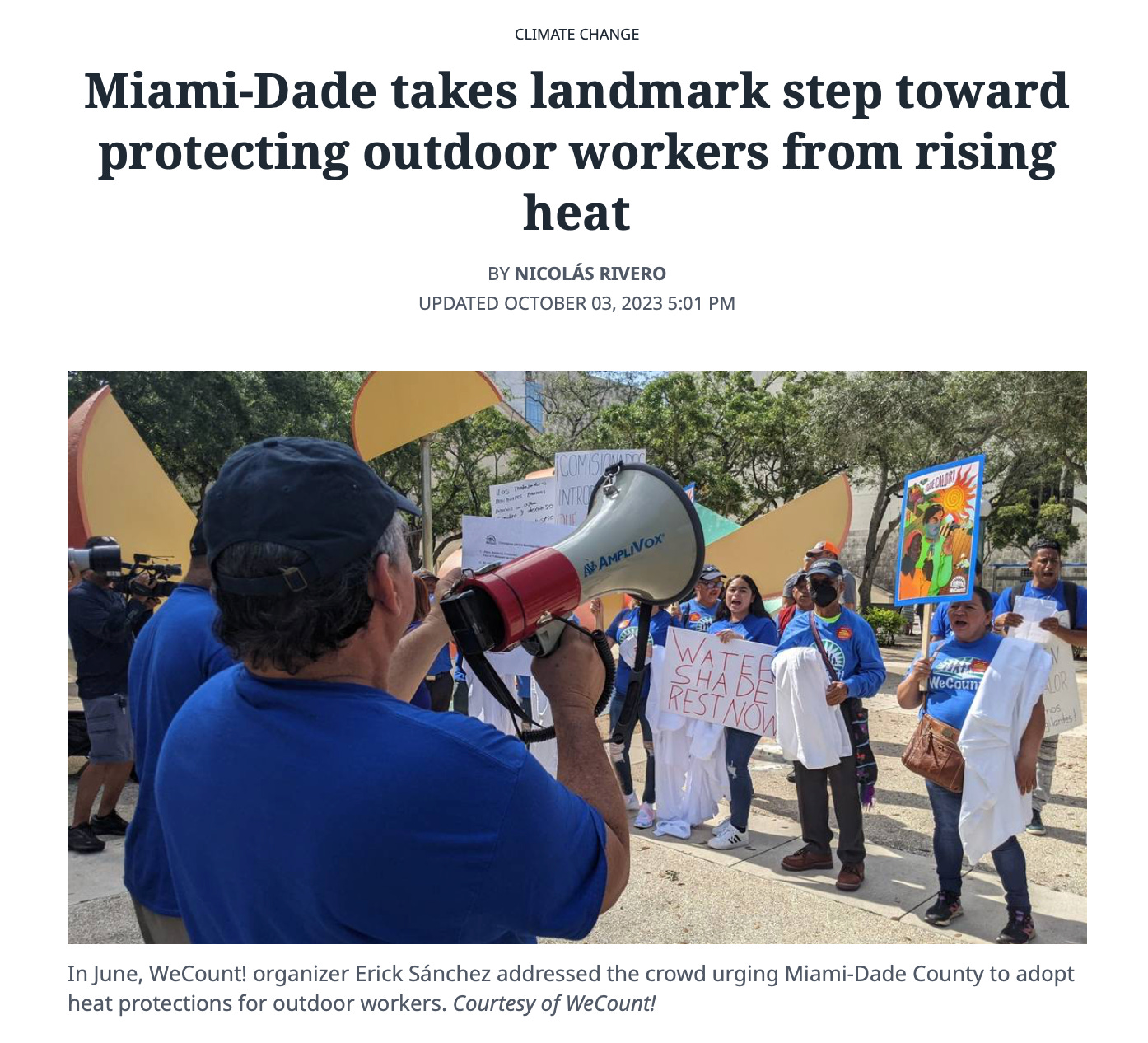
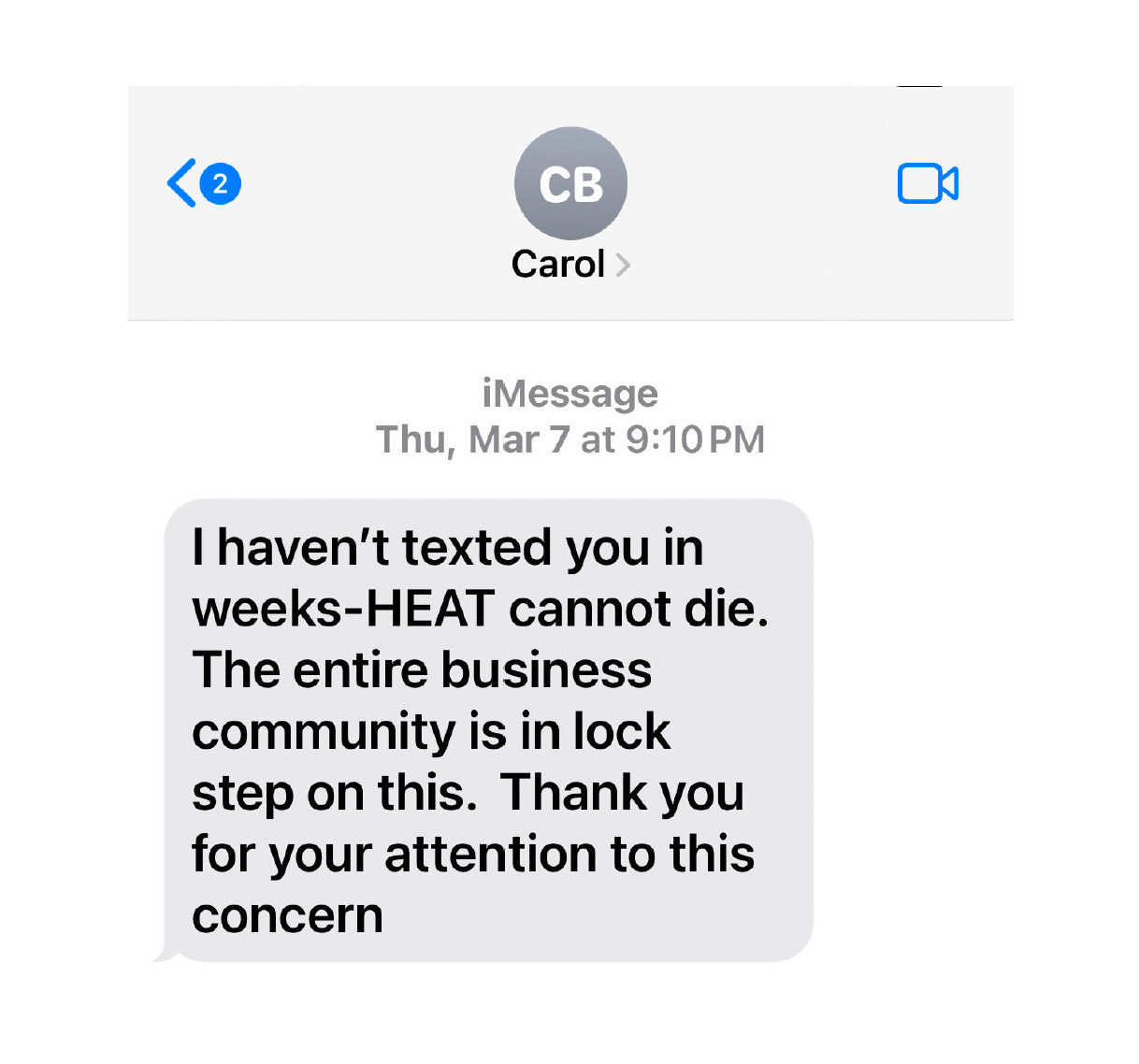
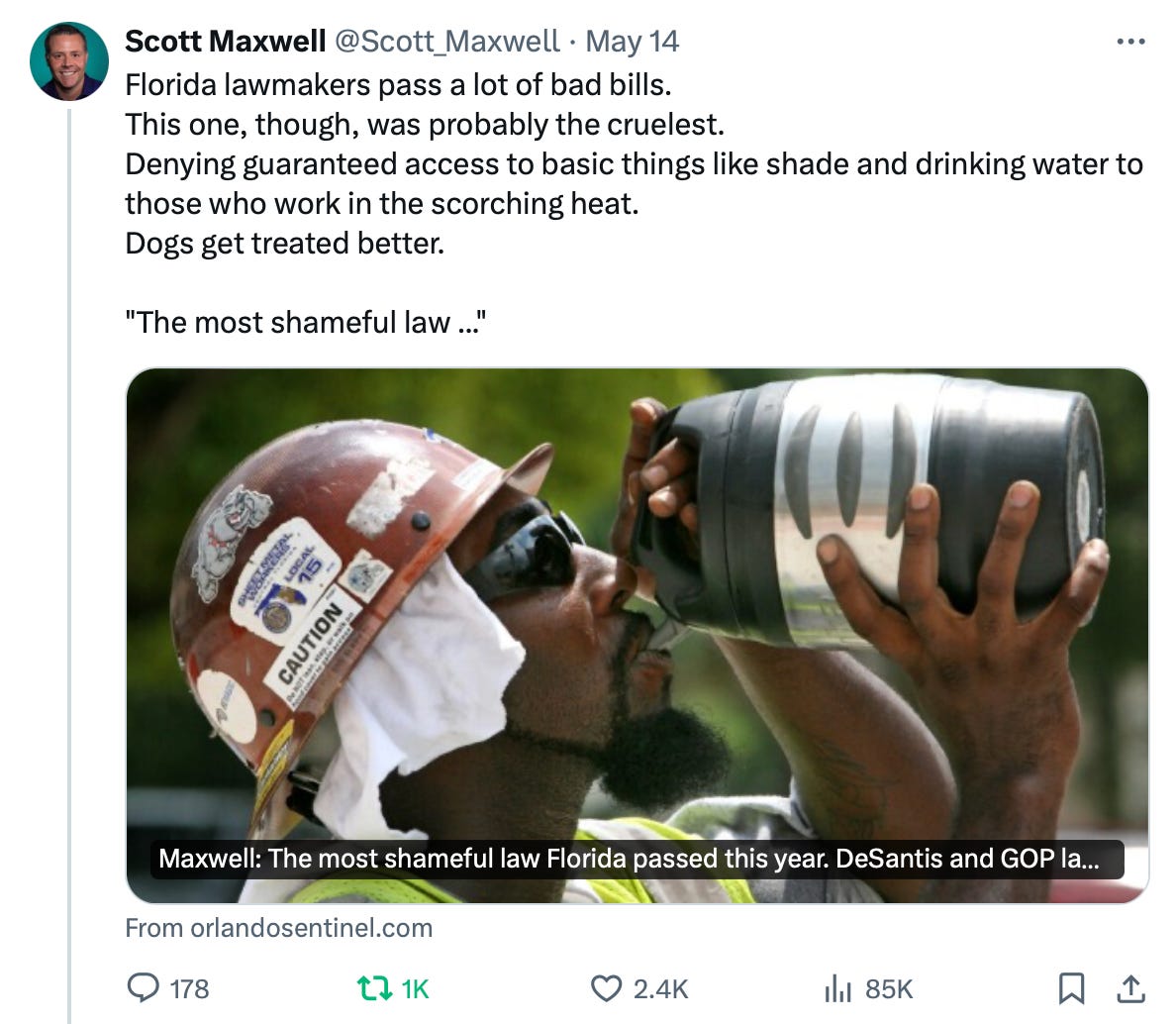

Anyone supporting and voting for these gqpfakebelievers is also complicit in their cruelty and inhumanity
Homeowners need to put up umbrellas or tents, fill cooler with water for roofers, cement layers etc. screw any business that doesn't do this with or without laws.
I purposely do not purchase any Florida produce or sugar and never will .